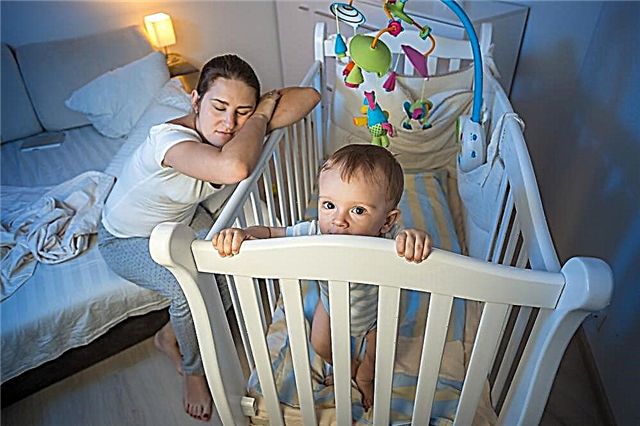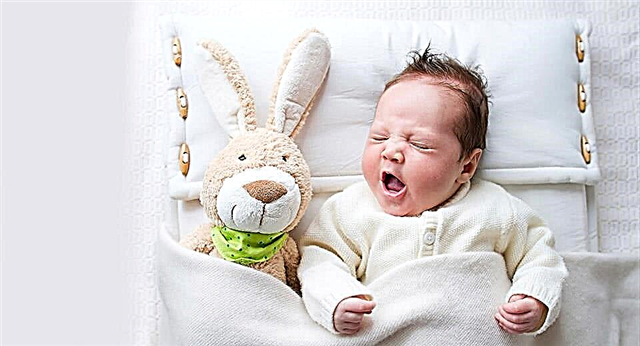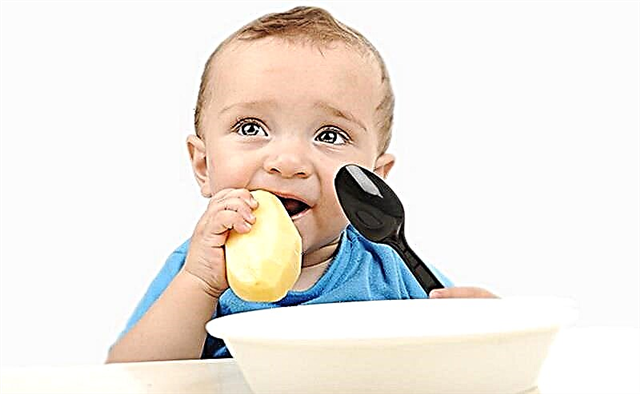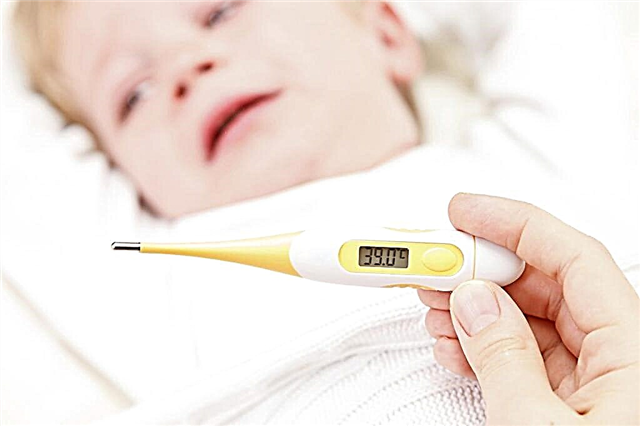If your child does not sleep well at night, do not panic. There may be physiological reasons for this, some health problems, a psychological factor. Usually, by the age of 2-3 years, the baby sleeps all night and does not want to sleep at all during the day. Young children are often worried and wake up in their sleep, you need to understand the reasons and take action.

Kid playing in bed
Sleep features of babies up to a year
A newborn baby sleeps 16-18 hours a day. Children's sleep is superficial, it is easy to wake up the baby. The older the baby becomes, the more of the sleep cycle goes into a deep state. By 6 months, the baby is able to sleep through the night without waking up. But not all parents are so lucky.
What to do if the child does not sleep well? First of all, you need to figure out the reason why the baby wakes up and cries. You may not have to do anything, and the baby will soon adjust to a new sleep pattern on its own.
How sleep problems manifest
Sleep disorders are classified into several types. Some more serious ones can lead to awakening crumbs in the middle of the night in fear and cold sweat. Others - the baby does not remember in the morning, but at the same time it interferes with the rest in the room from sleeping: he shudders, whimpers quietly, twirls strongly, grinds his teeth, breathes sharply.
Important! The cause of restless sleep is most often associated with a psychological factor, it goes away over time without treatment with pills.
Night fears
Babies are very impressionable - any new event, sudden movement, new toy leave an imprint on the child's psyche, sometimes not the most favorable one. What to do if a child does not sleep at night due to fears? We'll have to limit the baby's contact with the object of horror for a while.
For example, a baby sees a large fur from a winter jacket and does not understand that he is not alive, begins to cry and is afraid of him. The same happens with new toys or people that the baby is afraid of. He begins to bother his parents, he can wake up and cry.
Under the impression, the child begins to cry at night, can get up in the crib and go to bed again, whimper, breathe heavily. At such moments, you need to stroke the baby's back and calm it down. If he is crying a lot, then it is better to pick up and rock again.

Boy in bed does not sleep
Flinching
Frequent shudders in the middle of the night indicate sleep disturbance. The child spins a lot, constantly moves, can squeal. If the phenomenon is constant, then the baby should be taken to a doctor, to understand what is happening to him. Most likely, the child behaves this way due to stress. For example, I got to the hospital, was recently discharged from there, went with my parents for the first time, went to a zoo or an amusement park.
One-off flinches are not considered a problem. This happens when the muscles of an infant are relaxed during sleep. Periodically, impulses pass through the nerves, in children some part of the body twitches.
Important! Parents should not swear among themselves in front of a child, the crumbs can hardly tolerate loud sounds and a negative atmosphere at home. This can be the cause of sleep disorders.
Breathing disorder
In the middle of the night, parents may hear the baby breathing heavily or too fast. This happens because of a terrible dream. The moment of uncharacteristic breathing passes quickly, but manifests itself several times during the night.
If the baby hears noise through the wall, then he may have difficulty breathing. Usually such phenomena occur during the deep stage of sleep, when the body is as relaxed as possible, and the baby is dreaming.

Boy in bed and clock
Bruxism
This is a psychological manifestation of childhood excitement, in which babies experience involuntary movements of the gums, dental crowns touch each other. A characteristic creaking sound is heard. Grandmothers and great-grandmothers say that if a child grinds his teeth in a dream, it means that he has worms. This is a myth - such diseases are not related in any way.
It is recommended to periodically check the condition of the end of the front teeth. In some children, the crowns are erased almost to the very base. Doctors prescribe sleep with a special mouth guard.
Nocturnal enuresis
Children under one year old are physiologically unable to control the process of urination. Starting from 2 years old, this process becomes conscious, and the child learns to potty. By the age of 2.5-3, children still urinate in the diaper at night. This is normal.
If a child goes to kindergarten, he is older than 3.5 years and continues to urinate during sleep, then this indicates enuresis. The child does not know how to control nighttime urination, wakes up at night in a wet bed. In this case, you should consult a doctor, talk to a psychiatrist. First of all, doctors recommend tracking the time when the child urinates, and wake him up at this time.
Important! The earlier the treatment starts, the better the result will be. Enuresis is common among adults, begins in childhood and interferes with normal activities.
Physiological Possible Causes of Sleep Disorder in a Child
In one year old children, poor sleep is a physiological cause. It does not require treatment. At the same time, the baby wakes up in the morning cheerful and cheerful. Nightly worries do not bring him discomfort, he does not wake up tired.
Teething of milk teeth
Teething in children causes itching. If the crowns themselves are not yet visible, this does not mean that they are not being cut. The movement of the tooth is slow and smooth. The child feels itching, the gum turns red, hurts.

Baby is in bed
The baby refuses to eat, rarely has diarrhea and fever, does not sleep well. Dr. Komarovsky advises to be patient for this period. From 2 months of age, children begin to cut their teeth. It is impossible to predict how much the first incisors will appear; by the year the child will have all 20 milk teeth. It is advisable to use special homeopathic gels, to brew soothing teas, to distract from pain.
Intestinal colic
Increased gas production in infants occurs in 70% of cases. Children experience severe pain, begin to cry, bend over. Doctor Komarovsky and other pediatricians recommend giving the baby an anti-colic remedy. It immediately relieves the attack, and the baby falls asleep.
Gas accumulates in the intestines due to an imperfect digestive system. Carry your baby in a column after each feed until he regurgitates to reduce the risk of colic.
Uncomfortable sleeping conditions
The sleeping place of the child should be as comfortable as possible. Bed linen is changed every week, air is humidified. Stabilize the air temperature in the room.
If the baby is cold, uncomfortable, he will constantly cry, scream and spin. Children up to 2 years old do not use pillows, they sleep on a flat surface.
Important! The higher the humidity in the room, the better the baby sleeps.
Overwork and overexcitement
There are very active children who do not sit still for a minute. They are constantly busy with something, they do not want to play quiet games, they run and sit on their arms, touch and shift everything. Babies require constant attention to themselves.
By the end of the day, their bodies are so tired that they fall asleep instantly. Babies have time to gain impressions, get new emotions. Because of this, they shudder at night, wake up, whine. It is worth showing the little one quieter games to fix the problem.

Baby plays, mom sleeps
Hunger or overeating
A hungry child always wakes up at night to eat. One-year-old babies have a small stomach volume, food is quickly digested, and the baby asks for supplements. Very often, children under 1-1.5 years old are asked to eat at night.
Dr. Komarovsky says that physiologically, children have ways not to eat at night from 6 months of age. If after six months they continue to wake up, then you can try giving them water instead of milk. Overeating has the same effect on a baby's stomach as malnutrition. It is better to feed the children according to the regimen prescribed by the doctor.
Internal clock failure
It is advisable for the child to adhere to a certain sleep pattern. Babies, who sleep when they want, constantly, and their mothers indulge them, confuse day and night. They sleep off during the day and play at night. Pitying parents try to put the baby to bed, but attempts are useless. This tires both the baby and the mother.
You need to retrain the baby back. In the morning, when the baby goes to bed, they try to delay the moment of falling asleep as much as possible. After a few days, the baby will start sleeping again at night.
Health problems
When children are sick, they often wake up at night or do not sleep at all. At this time, it is better to take the baby under control at night: monitor his temperature, give him water and medications to drink.
At high temperatures, babies cry, spin, and experience headaches. It is necessary to give the child an antipyretic. Children show the same behavior in any illness.
Important! Sick children sleep a lot and are capricious. There is no need to wake up the baby if he is sick, the baby should sleep as much as his body requires.
External factors
The constant noise from the street, loud conversations behind the wall make the baby sleep restless. A harsh sound can scare a child and wake him up. After that, he wakes up, gets up in a bad mood, is capricious.
Others
Colds and infectious diseases interfere with sleep. However, there are congenital neurological diseases in which the baby does not sleep well from birth. Complex treatment prescribed by a doctor can help. Pills and homeopathic baths are prescribed.
Any deviations in the development of the baby are diagnosed in the first 3 months of life. Sleep improves after therapy.

Baby yawns
Psychological causes of impaired children's sleep
Children are very impressionable and emotional. Putting your child into a state of stress is easy. It is enough for him to visit a new environment, to meet new people in order to receive an emotional shock.
Emotional shock and stress
Parents should try to show a calm, joyful attitude and behavior. Babies are emotionally attached to their parents, they feel their experiences. All stress affects the relationship with the child and his behavior.
It is better not to take your baby to visit, not to expose him to plane flights. The baby must get used to the environment, grandparents. It is better for guests to come home to the baby.
The emotional state of a one-year-old baby is unstable. Any unpredictable action can cause stress, after which the baby does not sleep well.
Important! Children copy their parents: the calmer the behavior of adults, the better the baby feels.
Rules for improving sleep in children
It is not difficult for children to restore restful sleep. It is important to create a regime, a comfortable sleeping place, sufficient activity, a laying ritual. One-year-old children quickly get used not only to the environment, but also to the regime.

Boy rubs his eyes
Compliance with the regime
A daily routine helps you organize your baby's care correctly. This will play into the hands of parents more, create a small amount of free time for them.
Such advice is given not only by all pediatricians, but also by the famous doctor Komarovsky. He says that the regime in the future is good for adaptation in kindergarten. How to create a daily routine correctly?
In fact, nature arranged the children's body in such a way that the daily routine is formed by itself. After the birth, the baby wakes up to eat at approximately the same time. The same happens with the process of urination and with sleep.
If the baby is put to bed constantly at the same time, in a couple of days he himself will begin to ask to rest at this time. The number of dreams and their duration change several times a year. It is during these periods, when there is a transition from 3-time sleep to 2-time sleep, that problems arise. But after 2-3 weeks everything falls into place.
Important! Not all children are ready to sleep according to the schedule, but if you show persistence, then sooner or later the baby will give up.
A comfortable and suitable place to sleep
A comfortable bed, clean linens, a well-ventilated room will help your baby fall asleep faster and sleep better. The best sleep for a baby is outside. Fresh air has a positive effect on the health of the baby.

Baby sleeps on the bed
Physical activity
Babies become more active when they start to sit, crawl and walk. Until this age, parents are engaged in physical activity: they conduct massages, gymnastics, and carry away with bright toys. This is how babies release their energy. They get tired quickly, and the cycle of activity up to six months lasts only 3 hours.
Correct laying
The bedding ritual will help make your baby fall asleep at the same time. Doctors recommend bathing the baby before going to bed, massage and feed every day.
There are different methods of laying: motion sickness, falling asleep with a bottle or nipple. It should be remembered that sooner or later you will have to wean yourself from such techniques and train yourself to fall asleep.
Others
When the baby becomes older, you can try to read a book to him or bring it into the ritual. 1 hour before laying down, it is better to exclude active games, sweets and watching TV.
Problems with restful sleep occur in almost all children. Some babies easily and quickly readjust to the new regime, others need the help of adults. Problems go away with herbal teas and baths. However, it is worth talking to your doctor in advance and find out if there is a possible allergy to them.



